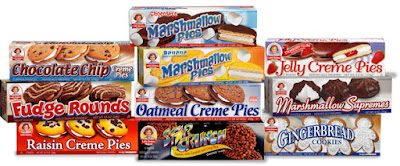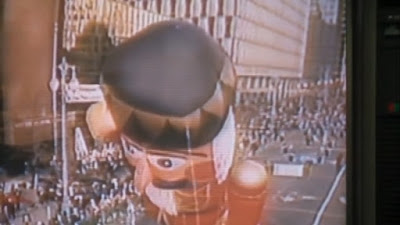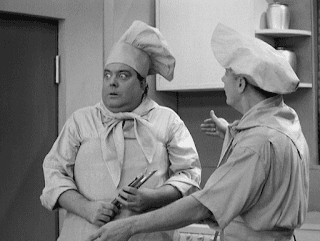Old television commercials have the ability to transport us back to a time and place. I've written about some of the more memorable ones (which you can find in the Collections Tab), and today, I'd like to talk about another one that I hadn't thought of in decades. Last week, a somewhat random post on someone's X account sparked a long-tucked-away memory, and I immediately headed to YouTube to find the jingle.
If you were living in the New York tri-state area in the 1980s and '90s, I guarantee you can sing along. Even if you hadn't thought of this ad in more than 20 years, you'll still be able to sing along.
Click the video below for a blast from the past. Warning: you'll be singing the jingle for a few days.
Doesn't that take you back? In my mind's eye, I'm sitting on the floor in my parent's living room, clicking through my favorite stations. Several commercials played on nearly every break back then, and this was one of them. It was often immediately followed by a commercial for the Broadway play "CATS" (Live, from the Winter Garden Theater)! You can watch that commercial here below, too.
We're not here for Cats, so, today, we'll discuss the famous (infamous?) hotel on Eight Avenue, between 44th and 45th Street, a little less than six blocks away from the Winter Garden Theater.
Sitting 27 stories tall, with (currently) 1,300 rooms, the Milford Plaza opened in February 1928 as The Hotel Lincoln. The Chanin brothers, Henry and Irwin, had acquired the site in May 1925 and developed the hotel alongside neighboring theaters, the John Golden, Bernard B. Jacobs, and The Majestic. Before it even opened, the Chanin Brothers sold the hotel in 1927 to Irving Lewine and the United Cigar Stores Company, but the brothers leased and managed the hotel until 1931. In 1931, United Cigars acquired their lease and the entire hotel.
In 1938, Maria Kramer bought the hotel. Under Kramer's ownership, the building had become a far cry from what luxurious (for the time) accommodations it once was as the Lincoln. Instead, it quickly became a rundown apartment hotel in a crime-ridden part of town.
In 1956, it was sold again, this time to real estate developer William Zeckendorf, who operated the hotel for Webb and Knapp, Inc. Zeckendorf immediately sought permission from the city to kick out the longtime rent-controlled tenants. He received permission, but the last seven holdouts faced eviction proceedings around when the hotel's furnishings were being auctioned off to make way for a significant renovation. The New York Times wrote, "Within four hours of the sale's opening bid, the restaurant, the barber shop, the coffee shop, and the beauty salon had been swept clean of all fixtures."
Zeckendorf's team offered to relocate the seven holdouts to similar accommodations in the Knickerbocker on West 44th, but they all declined. Finally, a cash payment of $3,000 per tenant (nearly a $35,000 payment in 2024 adjusted for inflation) got them all to vacate the premises promptly. Edna King, a resident since 1929, was the last to leave.
Once the tenants were out, Zeckendorf renovated the entire hotel and renamed it Hotel Manhattan. A decade later, in 1969, the British investment firm Grand Metropolitan bought the hotel and operated it under the name Royal Manhattan until closing it in 1974.
When the Milford Plaza opened its doors in 1980, Times Square's economic and architectural rebirth was still just a wish and a dream in the city planner's office, but the hotel did what it could to make a difference anyway.
That's when the Milford Plaza, as we knew it, came into existence. The Milstein family purchased the hotel in 1978, and after renovating the closed hotel, it reopened in 1980 under the new name Milford Plaza Hotel.
The hotel became famous more for its catchy television commercials than for its prime location in the heart of Times Square and Broadway. Thanks to the unforgettable "Lullabuy of Broadway" commercials that aired shortly after the hotel's opening into the 1990s, the hotel has become a Broadway legend. Many actors, musicians, and staff stayed at the hotel during production. Even more fans of theater stayed overnight as a "night on the town."
The hotel, with its 1,300 rooms spread across 27 floors, was littered with salesmen, tourists, and broke actors struggling to make it big in the theater district. Dreams were made and broken at Milford Plaza. The restaurants were packed with business deals and partygoers, and the rooms were full of people seeking affordable accommodations in the heart of downtown New York City near the about-to-boom theater district.
The marketing genius of those running the hotel is what set this fairly average hotel apart from its competitors. The commercial, which didn't change much more than the room's rate in over 15 years, featured choreographed bellhops, housekeepers, front desk agents, and waiters, all singing and dancing to the tune "Lullaby of Broadway," a 1935 song made famous by Doris Day in 1950, and Tony Bennett in 1957.
The commercial changed the word Lullaby to Lulla-BUY to emphasize that it was one of the most affordable hotels in the heart of the Great White Way.
The catchy jingle and infectious energy of the actors made Milford Plaza the go-to destination for theater lovers and tourists alike. The commercials achieved such popularity that they were parodied and referenced in various forms of media. Becoming a part of the local lexicon, the "Lulla-Buy" of Broadway and the hotel's reputation as a budget-friendly option for Broadway enthusiasts were cemented through these commercials.
Over the years, the Milford underwent several phases of renovations, including a new, sleek, minimalist makeover shortly after the turn of the century. Despite the changes, the hotel never lost its charm for nostalgia seekers looking to visit the "Lullaby of Broadway" they had seen on television for years.
Today, these commercials are a source of nostalgia and history for many New Yorkers (and the surrounding areas) as a reminder of a bygone era. They remind us of when we were children, comfortable and safe in our parents' living room. They remind us of a better New York. They remind us of simpler television when there were fewer shows and even fewer channels. There were even fewer commercials since they seemed to play the same four or five repeatedly.
In 2011, the Rockpoint Group and hotel operator Highgate Holdings bought the hotel. They continued to operate The Milford Plaza until 2014, when it was renamed The Row NYC Hotel.
Today, it may no longer be called The Milford Plaza, but its legacy as the "Lullaby of Broadway" will live on. The hotel's history is a testament to the power of great marketing and the endurance of a catchy ear-worm jingle.
In 2023, the City of New York took over the Row NYC Hotel for use as a migrant shelter.









.png)





Comments